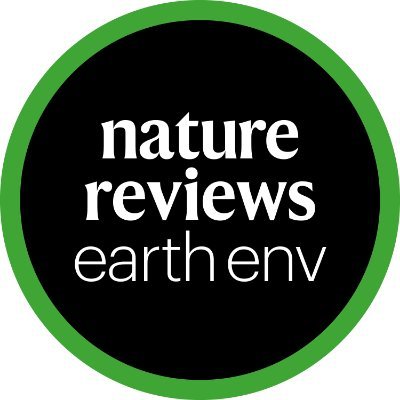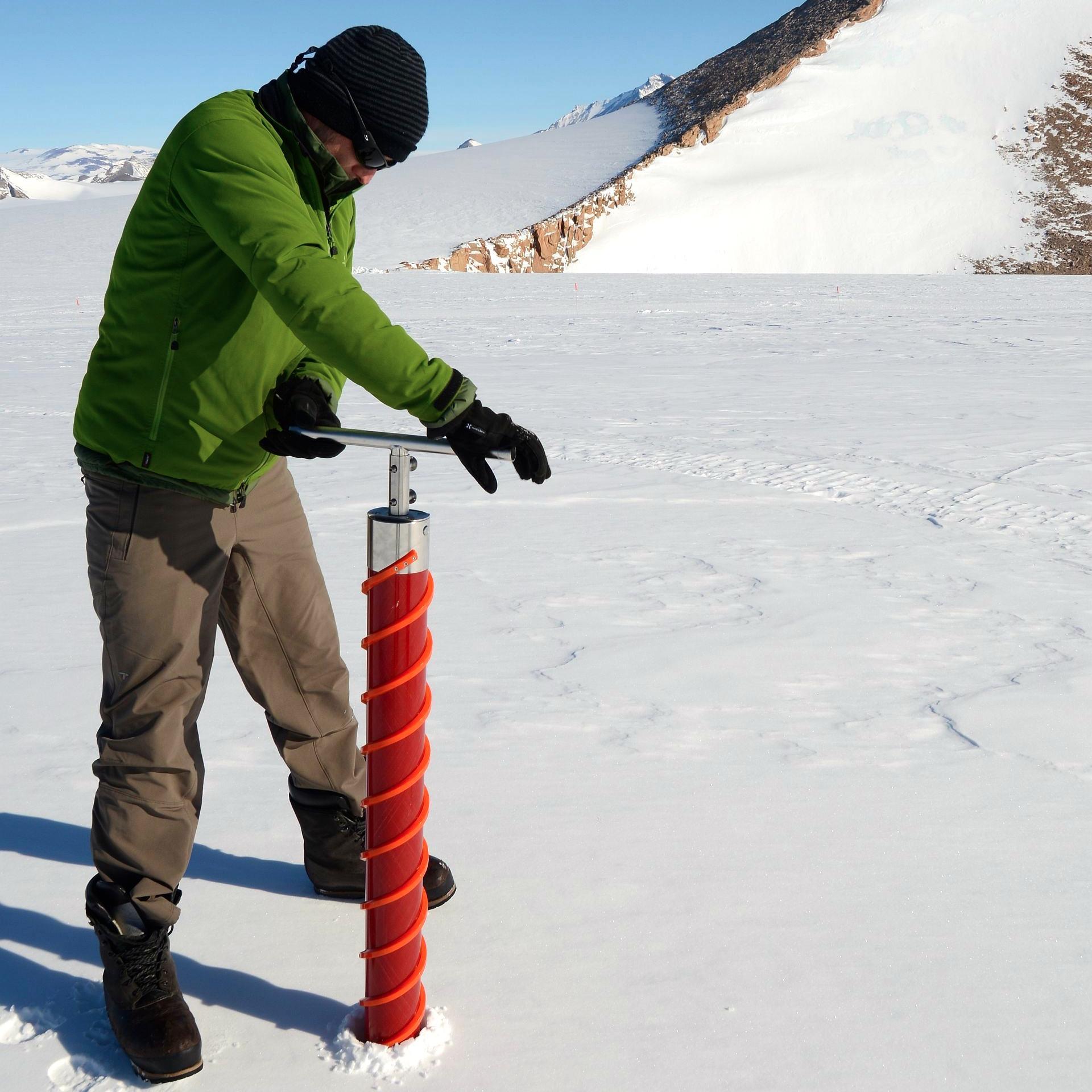
Stef Lhermitte
@StefLhermitte
Followers
5K
Following
2K
Media
583
Statuses
1K
Associate professor @KU_leuven & @GRS_TUDelft | 🛰 remote sensing of ❄️🌦🏔 🌲 Likes to hang out on bsky/mastodon/LinkedIn as "steflhermitte"
Joined August 2012
🥳🎉 for the 👌 Sentinel1-C 🛰️ launch. 🥳🎉 also for upcoming visualisations on https://t.co/APc3aOiWzf Let's leave this place with a video of #sentinel1 nicely illustrating the decay of Pine Island Glaciers' shear zones.
0
1
14
Excellent new paper by excellent @SdeRodaHusman
🚨 New paper! 🚨 Meet SUPREME💫: a method designed to downscale Antarctic surface melt from a regional climate model using a physically-informed super-resolution architecture. (1/5)
0
0
1
We present findings indicating that most of the Amazon region does not show an increasing trend in TAC. However, the predicted increase in extreme drought intensity and frequency could potentially transition significant portions of this ecosystem into a different state [4/4].
0
0
2
Our results indicate that the intensity of extreme droughts is a more important driver of slowing down than their duration, although their impacts vary across the different Amazon regions. [3/n]
1
0
1
Using satellite data from 2001-2019, we examined how drought frequency, intensity, and duration affect the Amazon's recovery time. We focused on temporal autocorrelation (TAC) as an indicator of critical slowing down [2/n]
1
0
1
🚨 New paper in @PNASNews by Johanna Van Passel explores the critical slowing down of the Amazon forest amid increased drought occurrences. 🌳🌧️ [1/n] https://t.co/qZdtEfEWMU
1
6
22
🧑🎓4 year PhD Opportunity on Antarctic Climate Causality @KU_Leuven and @UCLouvain_be under supervision of @nvanlipzig, Hugues Goosse and me More details and application form: https://t.co/WbvFWSv3qL 🗓️ Deadline 29 April 2024
0
8
18
Did you know that 60% of all meteorites ever collected on Earth were found in Antarctica? And did you know that the chances of finding such meteorites will rapidly decrease due to climate change? Check out the paper co-led by @VeroTollenaar & @HarryZeko: https://t.co/4wVcAK5wIf.
nature.com
Nature Climate Change - Most of the meteorites on the Earth’s surface are found in Antarctica. Here the authors show that ~5,000 meteorites become inaccessible per year as they melt into the...
1
10
32
https://t.co/H8CckYU9VJ The consequences of climate change can be felt everywhere. In a study published in @NatureClimate, we show how Antarctic meteorites are threatened by global warming. Every year, over 5000 meteorites are lost from the surface of the ice sheet. How? [1/7]
nature.com
Nature Climate Change - Most of the meteorites on the Earth’s surface are found in Antarctica. Here the authors show that ~5,000 meteorites become inaccessible per year as they melt into the...
2
25
49
🌍 Exciting Opportunity: a 4-yr PhD position in Antarctic Climate Causality in Belgium 🇧🇪 Work with the great @StefLhermitte, @nvanlipzig, & H. Goosse across 2 leading universities @KU_Leuven and @UCLouvain Help unlocking the mysteries of Antarctica! ➡️ https://t.co/drH3TOIBkY
2
10
16
🚨New Review! Firn on ice sheets❄️🧊 By the Firn Symposium team @StefLhermitte @tridatta1 @IcenPoles @bert_polar @colinrmeyer @hansen_nicolaj @athul_k12 @buzzard42735 @DevonDunmire @bjsimonsen @glacialeek @GlacialMeg
https://t.co/cJEQC8HrVo Free: https://t.co/wI94GczjdY
0
8
27
Another important access method [12/11] End
@StefLhermitte @bert_polar @SdeRodaHusman @glacialeek @keegan_kaitlin @lenaertsjan You can also share and access the article through the free-to-read link:
0
0
0
@bert_polar @SdeRodaHusman @glacialeek @keegan_kaitlin @lenaertsjan @NatRevEarthEnv A final shout out and thank you to @tridatta1
@IcenPoles @bert_polar @colinrmeyer @hansen_nicolaj @athul_k12 @buzzard42735 @DevonDunmire @bjsimonsen @glacialeek @GlacialMeg @SdeRodaHusman @keegan_kaitlin @lenaertsjan and many more not on Twitter! [11/11]
1
0
4
@bert_polar @SdeRodaHusman @glacialeek @keegan_kaitlin @lenaertsjan You can check the paper on https://t.co/BB6BxXmV1k, but @NatRevEarthEnv reviews are not open access, so DM for a copy or wait 6 months until the authors can self-archive the article https://t.co/B3BNWuE7FN [10/n]
nature.com
Nature Reviews Earth & Environment - A firn layer covers the Earth’s ice sheets. This Review outlines techniques to observe and model changes in firn properties and meltwater retention to...
2
0
1
@bert_polar @SdeRodaHusman @glacialeek @keegan_kaitlin Finally, this paper resulting from the firn symposium workshop has also shown me how inclusive, collaborative, travel-proof and fun an online symposium can be. Check @lenaertsjan's excellent wrap to know more: https://t.co/pkytZ625oV [9/n]
That’s a wrap: the International Firn Workshop has had its final session today. Some initial thoughts (1/n):
1
0
2
@bert_polar @SdeRodaHusman @glacialeek @keegan_kaitlin Our paper also underscores the urgency of reducing uncertainties in meltwater processes, emphasizing the importance of a tighter integration of modeling components—firn, atmosphere, and ice-sheet models [8/n]
2
0
2
@bert_polar @SdeRodaHusman @glacialeek @keegan_kaitlin Despite advances in observation and modeling techniques, uncertainties about meltwater percolation processes persist. To better understand and predict ice-sheet responses to anthropogenic warming, a more integrated approach is needed [7/n]
2
0
4
@bert_polar @SdeRodaHusman @glacialeek @keegan_kaitlin The implications are significant. All projections indicate that surface meltwater will increasingly impact firn. In Greenland, melt could extend 10 to 100s of kilometers further inland. Antarctic ice shelves won't be spared either—they'll experience more extensive melting [6/n]
2
0
3
@bert_polar @SdeRodaHusman @glacialeek @keegan_kaitlin However, continued atmospheric warming poses a threat to this protection. Warming in Greenland has already led to a 5% reduction in firn pore space since 1980 [5/n]
1
0
4
@bert_polar @SdeRodaHusman @glacialeek @keegan_kaitlin MOA<0.7 is currently is still widely the case on both ice sheets as refreezing of meltwater in the pore space of firn currently prevents 50% of meltwater in Greenland from running off into the ocean and protects Antarctic ice shelves from catastrophic collapse [4/n]
1
0
4







